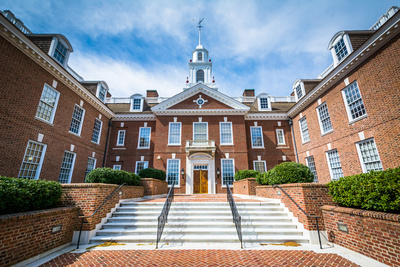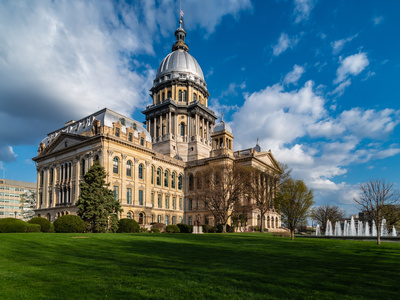Louisiana voters approved three constitutional amendments over the weekend on property taxes and transportation projects. Overall, the Louisiana Constitution has now been amended 189 times since 1974. As expected, the turnout was very low, despite primary races for statewide offices like treasurer and city positions like the Mayor of New Orleans. Here is a closer look at what Louisiana voters approved on Saturday.
Louisiana Amendment 1
Ballot Title:
Do you support an amendment to exempt from property taxes materials and other property delivered to a construction site to be made part of a building or other construction? Sixty-five percent of voters approved Louisiana Amendment 1, so ongoing construction will no longer count toward valuation for property tax purposes. According to the Public Affairs Research (PAR) Council of Louisiana, a public policy research non-profit, this
was already a common practice among many tax assessors, but the measure codifies the practice into law. The property under construction will be exempt from taxation until it “can be used or occupied for its intended purpose.”
A tax dispute for a gas export plant in Cameron Parish for Cheniere Energy prompted advocates to push for the measure to clarify how ongoing construction should be assessed. Advocates included those in the industrial construction business because their projects can take more than a year, subjecting the property to taxation on the ongoing improvements. Proponents formed a group called
Protect Louisiana Taxpayers, and
supporters included contractors, home builders, the Louisiana Municipal Association, industrial developers, and chambers of commerce.
Louisiana Amendment 2
Ballot Title:
Do you support an amendment to authorize an exemption from ad valorem property tax for the total assessed value of the homestead of an unmarried surviving spouse of a person who died while performing their duties as an emergency medical responder, technician, paramedic, volunteer firefighter, or a law enforcement or fire protection officer? In 2016,
Louisiana voters approved a property tax exemption of up to $75,000 on the primary home for surviving spouses of Louisiana National Guard members, state police, firefighters, and other law enforcement officers killed on the job with more than a year of service. This year, voters approved a measure giving the same exemption to surviving spouses of volunteer firefighters, emergency medical services staff, technicians, and paramedics killed while on the job. The measure, approved with over 67 percent of the vote, also gives an exemption to spouses of law enforcement officers killed in the line of duty who
have been on the force for less than a year.
Louisiana Amendment 3
Ballot Title:
Do you support an amendment that would dedicate any new tax levied on gasoline, diesel, and special fuels into the Construction Subfund, which solely shall be used for project delivery, construction, and maintenance of transportation and capital transit infrastructure projects and not for funding for the payment of employee wages and related benefits or employee retirement benefits? Since 1990, Louisiana has had a transportation trust fund that segregates revenues from taxes on gasoline and motor fuels to be used toward transportation projections, not to be diverted into the general fund. However, that has not stopped lawmakers from
diverting $679 million since 1991 away from transportation projects to fund the state police.
Amendment 3, which 53 percent of voters approved, would only matter if a new tax on gasoline is approved by the legislature. If approved, revenues from the new tax would be directed into a construction subfund, which can only be used for the construction and maintenance of transportation and capital infrastructure
projects, and cannot be used to supplement wages or benefits for police. In the 2017 legislative session, legislators introduced
five bills to raise the gas tax, with a proposed 10-cent hike expected
to raise $300 million for transportation projects. However, critics
expressed doubts that the money raised would go toward transportation projects.
The approved measure could help improve the efforts behind a gas tax increase in the 2018 legislative session. The legislature could find a way to subvert the measure,
as PAR argues, by using regular trust fund money to pay for police, while depriving transportation projections of money not protected in the subfund.
-000055-400px.jpeg)
-000055-400px.jpeg)

